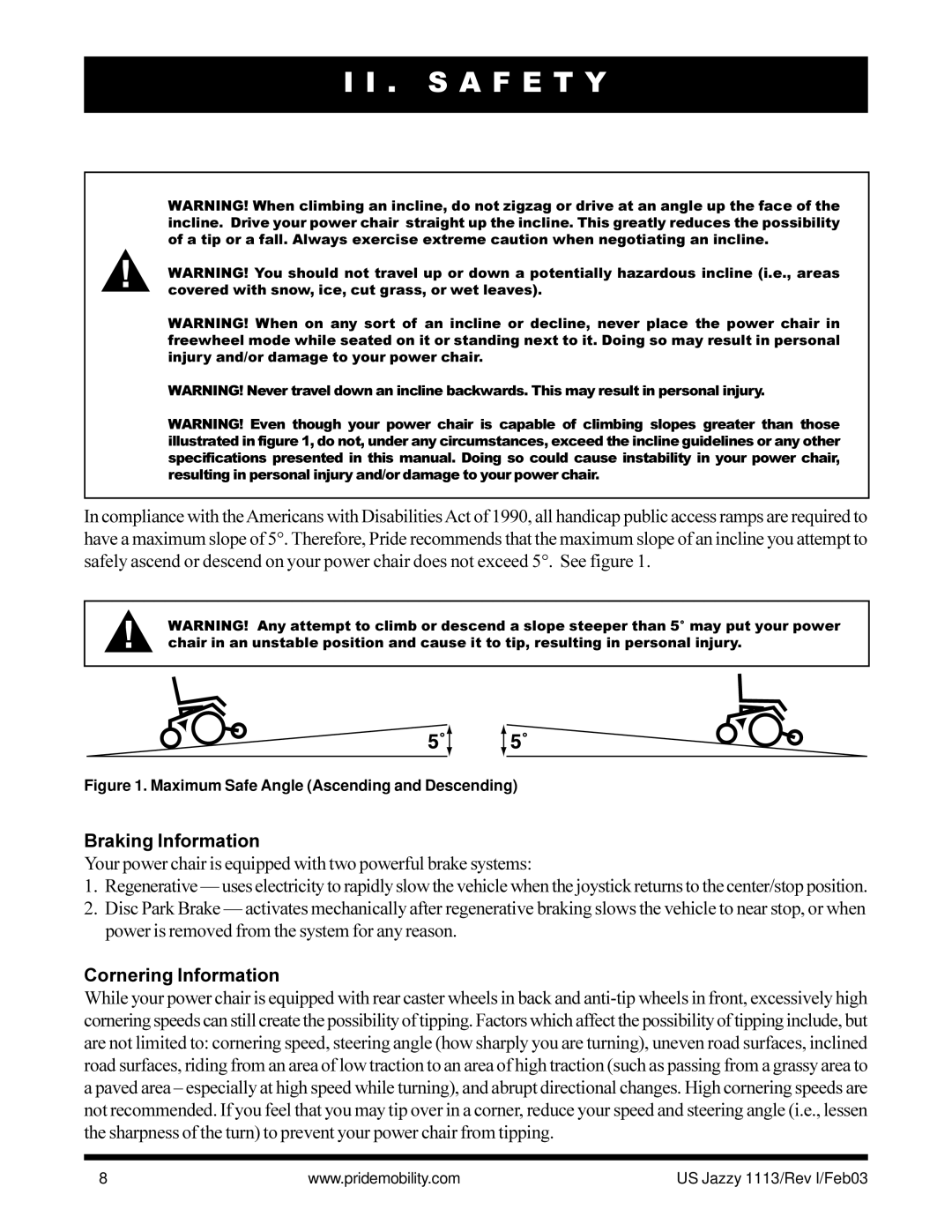
I I . S A F E T Y
WARNING! When climbing an incline, do not zigzag or drive at an angle up the face of the incline. Drive your power chair straight up the incline. This greatly reduces the possibility of a tip or a fall. Always exercise extreme caution when negotiating an incline.
WARNING! You should not travel up or down a potentially hazardous incline (i.e., areas covered with snow, ice, cut grass, or wet leaves).
WARNING! When on any sort of an incline or decline, never place the power chair in freewheel mode while seated on it or standing next to it. Doing so may result in personal injury and/or damage to your power chair.
WARNING! Never travel down an incline backwards. This may result in personal injury.
WARNING! Even though your power chair is capable of climbing slopes greater than those illustrated in figure 1, do not, under any circumstances, exceed the incline guidelines or any other specifications presented in this manual. Doing so could cause instability in your power chair, resulting in personal injury and/or damage to your power chair.
In compliance with theAmericans with DisabilitiesAct of 1990, all handicap public access ramps are required to have a maximum slope of 5°. Therefore, Pride recommends that the maximum slope of an incline you attempt to safely ascend or descend on your power chair does not exceed 5°. See figure 1.
WARNING! Any attempt to climb or descend a slope steeper than 5° may put your power chair in an unstable position and cause it to tip, resulting in personal injury.
Figure 1. Maximum Safe Angle (Ascending and Descending)
Braking Information
Your power chair is equipped with two powerful brake systems:
1.Regenerative — uses electricity to rapidly slow the vehicle when the joystick returns to the center/stop position.
2.Disc Park Brake — activates mechanically after regenerative braking slows the vehicle to near stop, or when power is removed from the system for any reason.
Cornering Information
While your power chair is equipped with rear caster wheels in back and
8 | www.pridemobility.com | US Jazzy 1113/Rev I/Feb03 |
